While we’re on biopics it would seem churlish not to review Chaplin, which is indeed the life story of iconic music hall and silent movie star Charlie Chaplin, a pioneer of cinema and ultimately one of the diehards who failed to convert to the world of talkies. That we still talk of him today in such revered tones tells much about Chaplin’s influence on comic actors a century on.
I like this movie a lot. Maybe not perfect, but as good an encapsulation of Chaplin as you’re ever likely to find. It captures the essence of the man, his spirit, his joie-de-vivre, his pathos, all the factors you would hope to bring to the perfect biopic but which so often seem to get lost amid the struggle to cram in the facts in a functional and roughly accurate fashion. Of course, directors sometimes go too far the other way, such as the bizarrely stylised attempt to get under the skin of another great comedian in The Life and Death of Peter Sellers.
Richard Attenborough has avoided temptations to weirdness or menace. His movie has throughout a warm, affectionate tone that says much about the influence Chaplin had on him personally, and the world in general. Paying homage is no bad thing, neither is portraying your heroes, so long as you tell the full story, warts and all. Credit therefore to Attenborough for not pulling any punches, for showing the dark side of the star as well as his genius.
Chaplin tackles difficult topics head on: the star’s attitude to politics and pissing off J Edgar Hoover, such that he was driven from America at the height of the communist witch-hunts, for example? All dramatised in notable detail. Chaplin’s predilection for barely post-pubescent girls? Yep, that’s in there, with a suggestion that it resulted from the eternal memory of his first love, Hetty Kelly. who died in the Influenza epidemic of 1918 (and a nice touch that Moira Kelly plays Hetty Kelly and Oona O’Neill, Chaplin’s last wife.)
If I have to be critical, it has to be that Hollywood managed to insist on the tear-jerker of an ending in the form of Chaplin’s rehabilitation in Hollywood with a retrospective lifetime award and the playing of excerpts from his old silent films. A small dose of syrup notwithstanding, this is a fine movie – and at 2 hours 20 minutes probably as long as it could reasonably be within the mainstream tolerance levels of the average audience, and shorter than the recent biopic of Mandela, for example, with no less a life to recount.
As will all biopics (and I also said this of Marion Cotillard in La Vie En Rose) you need an actor capable not only of an impersonation but getting right under the skin, understanding the motivations and the rationale for the character. Method acting tells you you have to do that for all characters in every situation, but in a biopic, where you are using source material written generally in hindsight by the character or their biographers, understanding the original motivations is a matter of interpretation.
Robert Downey Jr, a man not without his own problems, makes a splendid Chaplin, one in whom you can believe, whether or not you would trust him. He is a somewhat brooding figure, ultimately a perfectionist in contrast with his clowning Mack Sennett days when movies were churned out several times a week. Downey’s Chaplin is also a man with a public facade, perhaps to hide the chaos of his private life, the grief from his childhood and the death of his first love, Kelly. You see the tears of a clown, but maybe only a few hypotheses about the source of those tears. Even Chaplin’s real life autobiography seems to hold back on the real inner man, so full marks to director and star for making the best job available of what made the man tick.
Downey’s Chaplin is a huge talent, a perfectionist to be sure, but also a visionary, a flawed genius who would not suffer fools gladly but who did ultimately want to be loved – even if his choice of women was often less than sensible. He preferred innocence, but those whom he trusted often exploited him ruthlessly or self-destructed to his cost.
We see him from his early years, struggling to cope with a mother whose hold on reality was at best tenuous (Geraldine Chaplin beautifully portraying her own mentally unstable grandmother, Hannah.) Make no mistake, Chaplin came from very poor roots in London, which makes his later return to London and the bittersweet relationship with fans, some of whom accuse him of selling out all the more poignant – and helps to explain his subsequent exile in Switzerland. Well, that and being banned from returning to the USA by Hoover.
We follow him throughout his American years, the development of his movie career and into stardom. We see the magic of the creation of Chaplin’s eternal alter ego, The Little Tramp – and a more prosaic explanation too. There is an inevitably rambling and episodic nature to the events portrayed, interspersed with the elderly Chaplin’s dialogue with a fictional literary editor (played by Anthony Hopkins, not in Hannibal Lecter mode on this occasion!) Indeed, the whole ensemble cast is quite magnificent, particularly those playing real life people; Kevin Kline makes for a swashbuckling Douglas Fairbanks, for example, though the film is studded with excellent cameos like this. Look out also for Dan Ackroyd‘s Mack Sennett, more concerned with churning ’em out thick and fast and managing his fiancée than mastering the art.
Indeed, Chaplin the movie recreating real life events with true panache in the hands of Attenborough, such as a Keystone Kops-like silent sequence as Chaplin tries to escape from the authorities trying to charge him in relation to a paternity suit, of which he was not guilty but paid regardless, financially and in terms of his reputation. Perhaps more to the point, the recreation of some of Chaplin’s finest silent scenes as if from behind the camera is done brilliantly – though the ending, recreating the Oscar presentation, shows the original excerpts, and rightly so.
The best bit? Ah well, the best bit is right at the very beginning – the saddest moment of all as the artists takes off their costume and smears the oil paint with a towel, as fantasy becomes tragic reality. That says it all.
Enjoy!

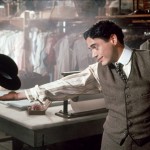
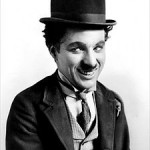
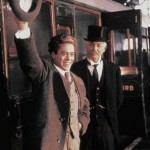
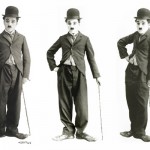
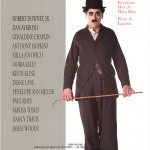
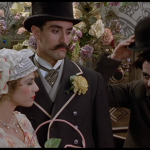
I have realized that car insurance organizations know the cars and trucks which are at risk from accidents as well as other risks. Additionally , they know what sort of cars are given to higher risk and also the higher risk they have the higher your premium amount. Understanding the uncomplicated basics with car insurance will allow you to choose the right type of insurance policy that could take care of your family needs in case you get involved in an accident. Many thanks for sharing a ideas on the blog.